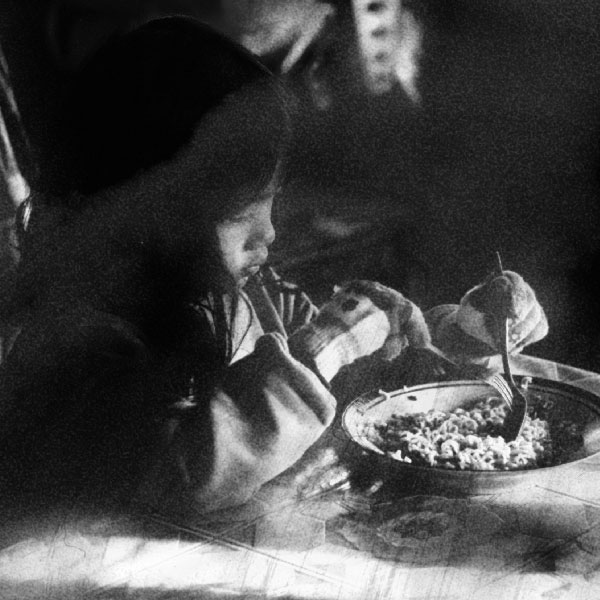About this project

Around 2 million people in the UK are subject to the ‘no recourse to public funds’ (NRPF) rule, an immigration restriction being rapidly expanded as a result of Brexit and the Nationality and Borders Act 2022. NRPF, which affects undocumented migrants and most migrants with time-limited residency, prohibits access to mainstream welfare benefits, social housing, and other support (e.g., extended childcare services). The little existing research on NRPF has shown that it traps migrants in destitution, often for many years, particularly mothers and children from Britain’s former colonies (e.g., Nigeria and Jamaica) who are already experiencing socioeconomic disadvantage. Many mothers affected by NRPF are not allowed to work because of their migration status or because they cannot access childcare. With the only potential state support coming from cash-strapped local authorities under the Children Act 1989, which in practice is minimal and difficult to access, families are often left homeless and vulnerable to exploitation and abuse.
Charities point out that unaccompanied young people – who come to the UK as children without parents – face similar problems if they are unable to regularise their migration status before turning 18, at which point they become subject to NRPF. Previous research on NRPF has focused on peak moments of crisis when families seek support from charities or local government. Yet, NRPF has to be navigated daily and the impact is potentially deep and enduring. Our previous research suggests there is a discrepancy between how children are perceived as needing care and protection, and how everyday life actually unfolds for migrant children. For example, children affected by NRPF spoke of skipping meals, doing homework on mobile phones, and living in inadequate accommodation, despite receiving support under the Children Act 1989. Our findings show that even though children feel and understand how precarious their daily lives are because of their migration status, they are rarely asked about their experiences.
The Shadows research project explores the everyday impacts of NRPF over time. It seeks to advance understanding of the ways destitute migrant families and unaccompanied young people with insecure migration status sustain their lives in the absence of mainstream welfare support in England.

Research Questions
1
How does NRPF impact the ways children, young people, and parents with insecure migration status make and sustain their lives over time? In what ways are these practices mediated by ‘race’, class, gender, generation, and (post)colonial status?
2
What is the relationship between ideas about who children are and should be in this context (e.g., children as requiring ‘protection’), and the daily lives of different groups of children affected by NRPF?
3
How can historical and decolonial policy analysis help to explain the purposes, persistence, and expansion of NRPF? How can this advance understanding of how NRPF shapes present-day experiences in order to inform ongoing policy debate?
Methodology
Shadows explores these research questions through:
Long-term, in-depth ethnographic fieldwork including spending time with people and learning about their everyday life, as well as interviews and creative methods such as photography. Our research involves parents with NRPF and two groups of young research participants affected by NRPF – unaccompanied young people and those living with parents. This is a new approach as research, policy, and practice generally fail to connect the experiences of these groups.
Decolonial policy analysis. We examine past and present policy discourses around NRPF, generating knowledge about how and why NRPF continues to be expanded despite knowledge of its detrimental impacts.
Working with civil society organisations engaged with NRPF, including our Project Partners – Displaced Collective, Kent Refugee Action Network, Project 17, and South London Refugee Association – and some of our participants, we will collectively analyse and disseminate robust evidence about NRPF’s long-term impacts through open-access online, print, and arts-based materials. We do this to enhance practice, shape policy, and inform public debate about migrants’ access to welfare support.
Core project concepts
WELFARE BORDERING
We use this concept to explain the ways that migration policy and bordering practices deny or set limits on social support on migrants. The ‘no recourse to public funds’ (NRPF) rule, first introduced with the Immigration Act 1971, is an example of welfare bordering in the UK. Undocumented migrants and most migrants with time-limited ‘leave to remain’ are not allowed to access most welfare benefits, social housing, or support tied to benefits, such as extended childcare services, even when they face homelessness, hunger, and extreme poverty. We seek to understand the long-term consequences of welfare bordering by looking at how NRPF affects the lives of people who are already marginalised.

Decolonialism
We draw on decolonial writers who stress that understanding the UK’s welfare system, including how and why it is bordered through migration policy, requires paying attention to the ways in which it has been resourced through (neo)colonialism and structured by colonial logics of belonging and entitlement. It also requires learning from and working with groups who have previously been marginalised from knowledge production. In Shadows, we will work with children, young people, and parents with NRPF whose perspectives and experiences are often excluded.

Social reproduction
We refer to the labour of sustenance and survival as ‘social reproduction’, the often-invisible life-making practices by which individuals fulfil embodied needs, care for themselves and others, as well as attempt to make meaningful lives for themselves and family members. Social reproduction theory asks who undertakes such labour, in what contexts, with what infrastructure or support, and how this is understood and valued, as well as what stratified effects this generates. In Shadows, we ask how life-making practices are affected by NRPF, as well as the ways that people with NRPF may counter or resist welfare bordering.

Children and Childhood
The scant research about NRPF highlights its impacts on children who are caught by policies designed to curtail support for parents, making their lives impossible in the process. Many of the proposed remedies rely on imaginaries of children (e.g., ideas about who children are or should be) as fundamentally dependent and vulnerable as a way to mobilise child protection policies. However, we understand childhood to be a socially constituted category, social position, and institution. This leads us to ask questions about how ideas about childhood shape the experiences of the young and to consider how they may participate in the labour of making lives and resisting welfare bordering by engaging with their experiences, practices, and perspectives.

